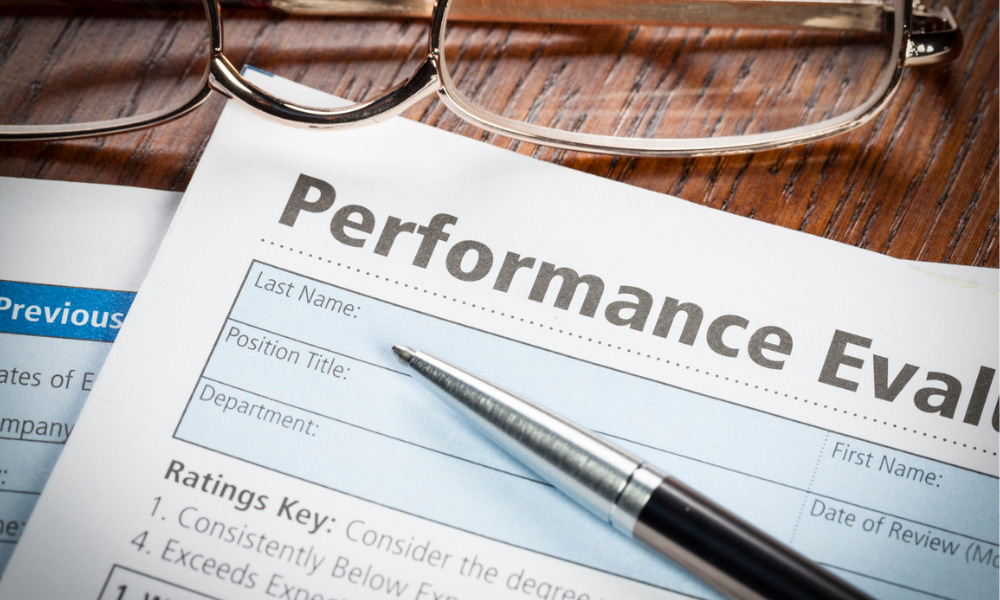
'If conversations are happening, there shouldn't be any surprises when the annual performance review comes around'

Performance reviews. The very words make hearts sink, not just among employees but among managers. It's not that employees don't want feedback or that leaders don't want to develop their staff – far from it. But too often, performance reviews have a bad rap. They're seen as a time-consuming, box-ticking exercise, valued neither by managers nor staff.
Read more: Should HR provide part-time benefits for part-time employees?
It's here that HR leaders can have a positive impact by ensuring that performance reviews are one part of an ongoing process of feedback and development, designed to help staff do the best that they can.
“One of the complaints I hear is that people don't have regular appraisals, so they don't have clarity or awareness around their work or any feeling that they are being invested in,” says Karen Gately, leadership expert and HR consultant at Corporate Dojo.
“If there are regular conversations happening, then there shouldn't be any surprises when the annual performance review comes around,” says Gately. If an employee is failing to meet objectives then that needs to be addressed at the time and in the moment.
“Performance reviews should be an opportunity to reflect but also to talk about capability, growth and development so that people feel they are being invested in,” says Gately.
“Today more than ever, employees – particularly the younger generations – want to know how they are progressing, but they don't want to feel judged – that is the source of straight-out anger, says Greg Smith, author of Career Conversations: How to get the best from your talent pool.
Arbitrary ratings that aren't linked to anything concrete, or criteria that are vague and open to debate, can poison what could be a positive and helpful conversation.
“Employees want assessments to be fair and balanced. So make it simple and the measurements real, such as projects aligned to budgets or goals achieved within time frames,” says Smith.
Reflection is important, but more in terms of what has worked, Smith says.
“I don't think trawling over old miseries of the year before is much use. We should look at deficits, but you're going to get more productivity if you focus on strengths.”
An HR leader has an important role to play in helping managers become more skilled themselves at delivering performance reviews. Many people in senior roles find these conversations difficult, especially if they lack the interpersonal skills necessary to engage employees.
“Particularly in technical professions such as computing, engineering and accountancy, you find that managers get the value of a performance review but they don't know how to do it,” says Smith.
Firstly, managers should understand that providing frequent feedback, coaching and support to their team members is part of their role and if necessary, they should be given training in how to do it well, says Gately. The more a manager practises giving feedback, the less they feel emotional discomfort about disappointing people and worry that people will be deflated.
Read more: Record-number of women join WA's Trainee Firefighter School
If in doubt, HR can provide a script and answers to frequently asked questions so that managers have some guidance around what to say.
The template should be about “enabling and empowering the individual to help them become as successful as they can be. Conversations around shortcomings should always go hand in hand with strategies that show it is possible to overcome these and that you are on their side and going to play your role in helping them get to where they need to be,” says Gately.
Other barriers to effective performance review may include unconscious bias. Training to help managers recognise and overcome their unconscious biases will ensure fair and equitable appraisals.
Linking performance reviews to salary decisions can also be problematic. Even if a manager is not involved in making salary decisions, they will still be fielding questions from employees. There needs to be transparency and clarity around the company's compensation strategy and managers need to be fully informed about how it works.
Many consultants advise separating the discussions around pay and performance to better focus on employee engagement and development.
The time taken to conduct performance reviews is another bugbear. Managers often complain that performance reviews are cumbersome and actually get in the way of having meaningful and productive conversations with their staff, says Gately. If the business uses a performance management system, make sure it is not clunky and outdated, train managers in how to use it and show how it will help them to motivate, engage and hang on to the talent.
In tandem with equipping individual managers, HR can also trawl the business to discover how people feel about the performance management process, the time commitment involved and whether the format suits the needs of different teams. Invite ideas on how it might be improved either through questionnaires, informal conversations, exit interviews and employer review sites – employees feel consulted and each insight is useful.